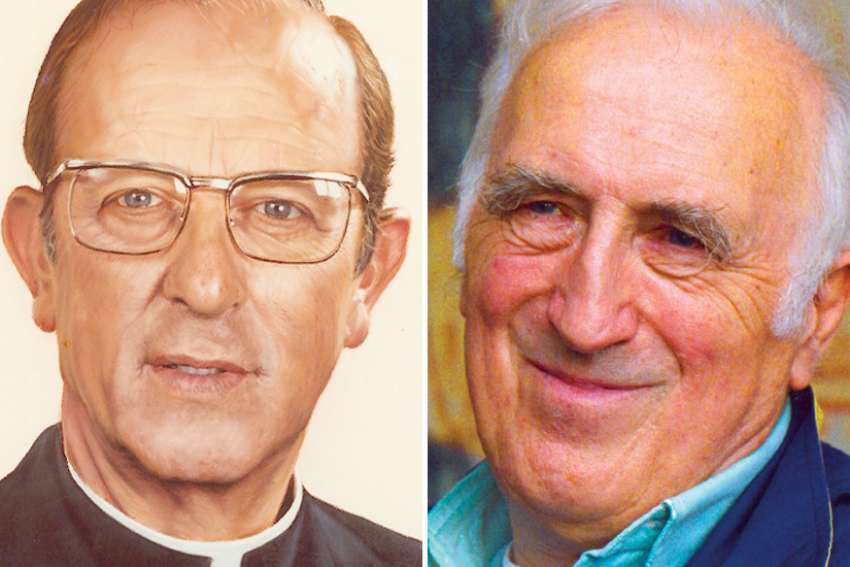By outward appearances, Vanier had a sound Christian spirituality when in fact his immoral actions betrayed a deep chasm separating him from God. One cannot be spiritually attuned to God if one is morally corrupt.
His books reveal the insights of one who reflected deeply on the Gospel and its application to daily life. Despite that, Vanier was a moral miscreant and an unholy man.
His upbringing may have been deficient in love, but that is no excuse for his actions later in life. Many, many people have, for example, suffered from PTSD due to various experiences without later afflicting serious harm on others.
Moreover, Vanier’s case is not unique. The most infamous split between faith and goodness was that of Marcial Maciel, founder of the Legion of Christ and Regnum Christi. Maciel, himself the victim of sexual, physical and verbal violence as a child, lived a secret life as a drug addict who sexually abused numerous young boys and seminarians. While a priest, he fathered several children. Although the young Maciel was tossed out of two seminaries, he took private studies and was ordained by a bishop who happened to be his uncle.
In 2010, the Vatican (finally!) stated that Maciel’s system of power within the Legion of Christ enabled him to live a life of “true crimes and (to) manifest a life without scruples or authentic religious sentiment.”
A life of prayer and spiritual discernment is supposed to lead to holiness. Fr. Timothy Gallagher, in his well-regarded book The Discernment of Spirits, distinguishes psychological awareness, moral awareness and spiritual awareness.
The first is an awareness of our own psychological patterns which helps us make emotionally healthy decisions. Moral awareness involves fidelity to human and divine goods in our words and actions. Spiritual awareness is an attunement to God’s love which increases our insight into how God is acting in our lives.
One might assume that a combination of grace and spiritual awareness would ensure that a person is morally upright. But Vanier’s life reveals that the relationship is not straightforward. For him, spirituality and morality were disconnected. Spiritual awareness does not cause moral goodness; it only helps us behave in a morally good manner. Further, many people live morally upstanding lives without any spiritual anchor. The Church views their moral rectitude as a step towards acknowledging Christ as the source of salvation.
Gallagher concludes: “Effective spiritual awareness will assist the human person in making psychologically healthy choices and wise moral decisions.” However, we also should acknowledge that moral deviancy is spiritually corrosive. Psychological, moral and spiritual awareness are interrelated, but if any of the three is basic, it is morally good action. We can be spiritually alive but morally decadent. Such decadence will turn back on our spirituality and destroy it.
Here arises the issue of moral conscience. The current tendency in Western society is to draw a sharp line between conscience and law. The exercise of conscience is an inner discernment by a moral subject; moral law is an imposition from an external authority.
That’s a false dichotomy which leads to the view that conscience is a licence to do whatever we please. This understanding of conscience may include reflection, but if such reflection does not centre on moral truth, it is easily distorted by rationalizations and one’s own moral blindness.
Conscience is rightly seen as a discernment of moral truth and a longing for the goodness written on the human heart. We need an external guide, a divinely revealed guide, to guard against self-serving rationalizations.
The exercise of conscience is an internal dialogue between God and a human person. In that light, spirituality becomes a longing for union with divine beauty, but it is rooted in fidelity to truth and goodness.
Vanier’s hidden life is a prime example of how things can go wrong. He pretended to be a spiritual guide when his life was a moral mess. Women who came to him for spiritual guidance were sexually exploited instead. If we want to grow toward union with God, a well-formed conscience and moral rectitude are the starting point. Do good consistently and you will slowly become good as God alone is good.
(Argan is program co-ordinator at Star of the North Retreat Centre in St. Albert, Alta.)


